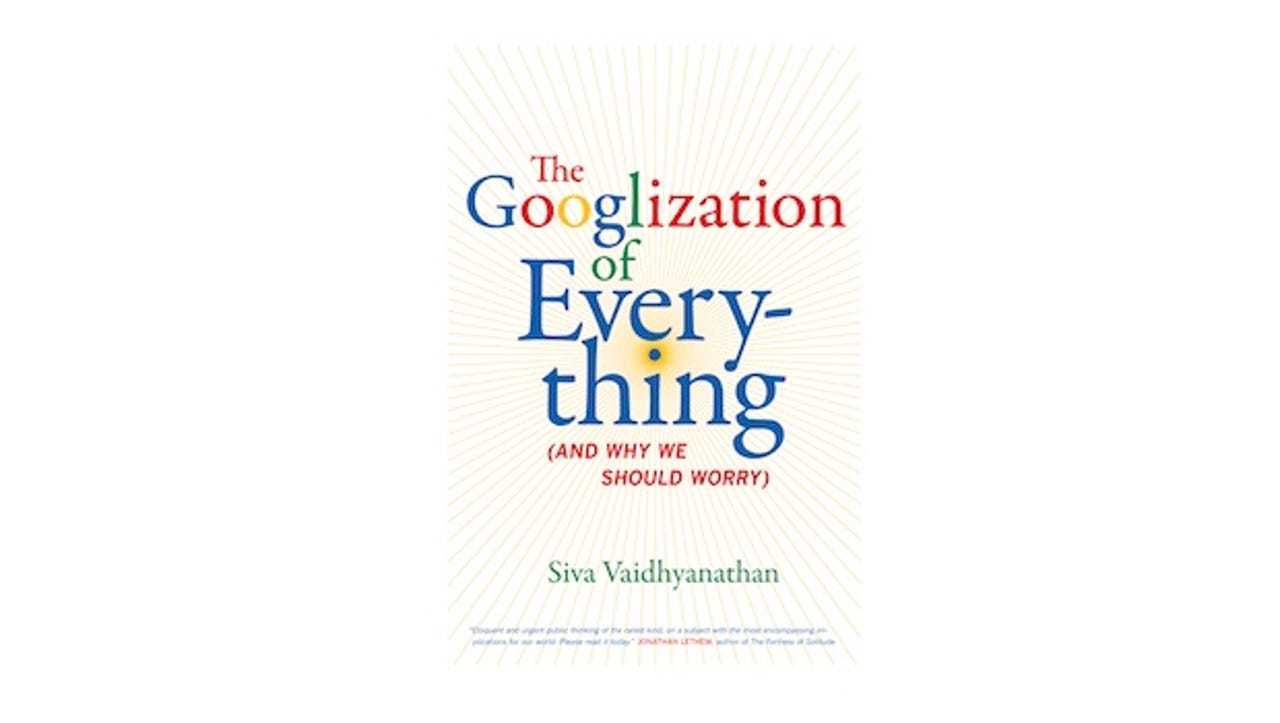Book reviews: Google books

If your industry hasn't been disrupted by Google yet, observed the New Yorker writer Ken Auletta in his 2010 book Googled, it will be soon. Two recent books look at the next stage of those disruptions — one academic, one popular.
The academic is Siva Vaidhyanathan, a professor of media studies and law at the University of Virginia, whose previous books have looked at the copyright wars and whose general theme is the tension between control and freedom in new media.
The popular writer is long-time journalist Steven Levy, who has added to his work for Wired and Newsweek a string of excellent books on technology history and development. Levy's particular skill is to get inside a group of people as they struggle to develop something new and disperse it to the masses — whether it's the Apple Mac (Insanely Great), the beginnings of mainstream computing (Hackers), or key security technologies (Crypto). Levy writes books that anyone can read but that techies also will read and respect — no small feat.
Levy began covering Google for Newsweek in 1999, watching as the company grew from a second-stage start-up to its present size. In 2007, he was invited to join the annual two-week international trip Google organises for its leaders-in-training — associate product managers. That trip inspired Levy to try to get deep inside Google to understand it. With the cooperation of founders Larry Page and Sergey Brin, he spent the next two years doing just that. This book is the result, following Google all the way from Brin's and Page's childhoods as Montessori school kids to January 2011, when Eric Schmidt stepped down as CEO and handed the reins to Page. Over that time, Google also went from a small company blowing away its few competitors — other search engines — to a giant company competing with a slew of big corporate names: Apple, Microsoft, the mobile network operators, the telephone companies, and most recently that young upstart called Facebook.
The key question: as Google has become a giant has it lost its edge? Most giants do, as the risk-takers of the early years give way to increasing numbers of the risk-averse. And certainly there have been missteps: China; the incident in which Street View cars sniffed wireless data; Google Books and copyright; the proposed framework for net neutrality that it drafted with Verizon. So has Google become evil? Or worse — and a bigger betrayal of Page's and Brin's aspirations — has it become conventional?
To answer these questions and many more, Levy conducted dozens of interviews. You won't find answers to every question you've ever asked yourself about Google, but if the answer is available, it's likely to be in this book.
By contrast, Vaidhyanathan is working from the outside: what is Google's impact on the rest of us? In answering this question, he covers many of the same developments: Google Books, the company's bout with China, the service's growing personalisation, and issues of surveillance and the preservation of local cultures.
Given that nothing quite like Google has ever existed before, he asks, what should we be worried about? Unlike many commentators, Vaidhyanathan is less concerned about Google's compromises: because the American search engine's market share in China is so small compared to that of the indigenous Baidu, he argues, the impact was minimal. But Google, for better or worse, is changing society in all parts of the world — and in doing so is acting in its own best interests, as all companies do. And as those interests change, so does its behaviour. "Where once Google specialised in delivering information to satiate curiosity," he concludes, "now it does so to facilitate consumption." Is that what we want? And if not, shouldn't we do something about it before it's too late? It's our world, too, you know.
The Googlization of Everything (And Why We Should Worry) By Siva Vaidhyanathan University of California Press 265 pages ISBN: 978-0-520-25882-2 £18.95
In the Plex: How Google Thinks, Works, and Shapes Our Lives By Steven Levy Simon & Schuster 424 pages ISBN: 978-1-4165-9658-5 £18.99
